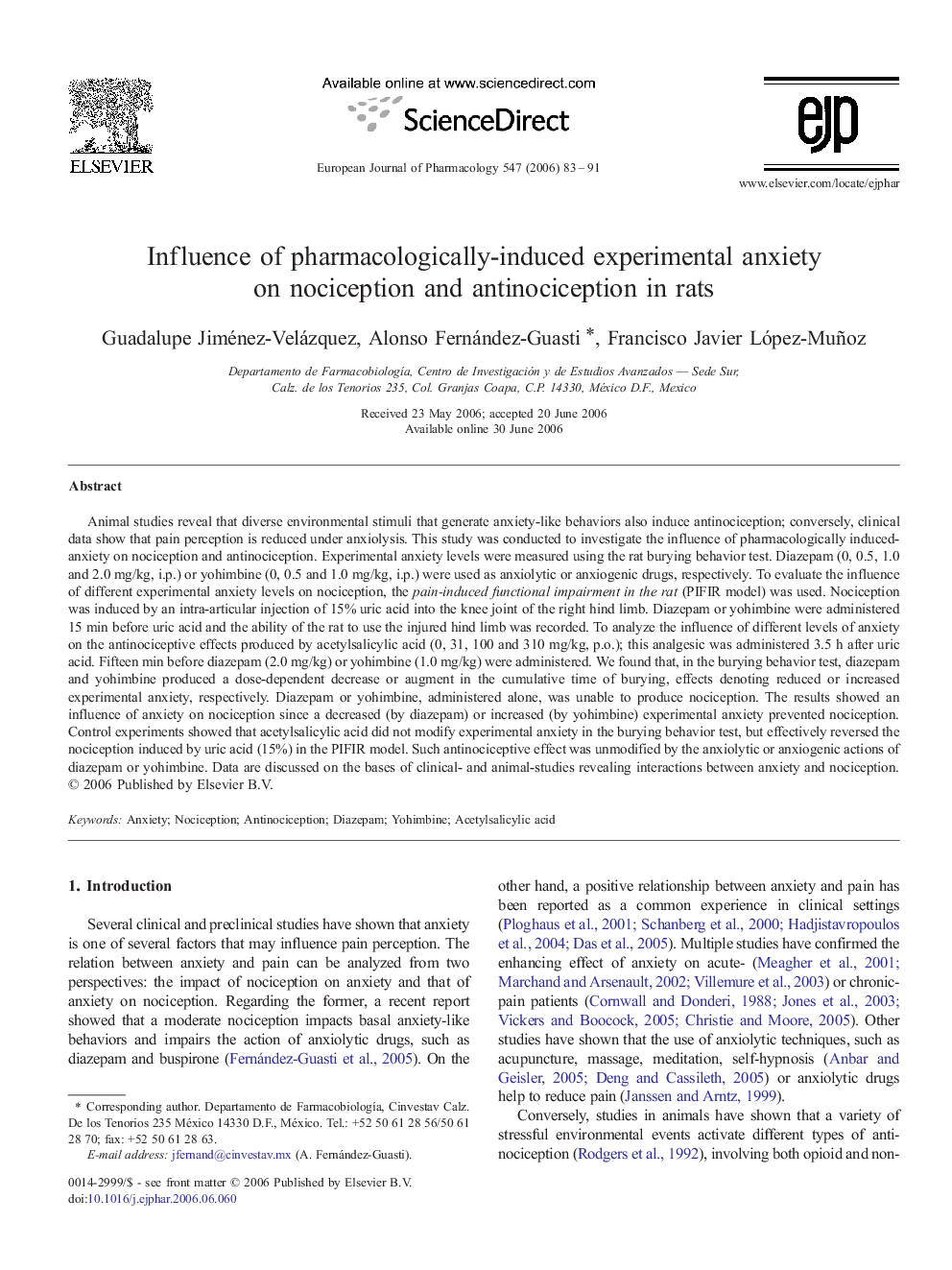| کد مقاله | کد نشریه | سال انتشار | مقاله انگلیسی | نسخه تمام متن |
|---|---|---|---|---|
| 2536850 | 1559168 | 2006 | 9 صفحه PDF | دانلود رایگان |

Animal studies reveal that diverse environmental stimuli that generate anxiety-like behaviors also induce antinociception; conversely, clinical data show that pain perception is reduced under anxiolysis. This study was conducted to investigate the influence of pharmacologically induced-anxiety on nociception and antinociception. Experimental anxiety levels were measured using the rat burying behavior test. Diazepam (0, 0.5, 1.0 and 2.0 mg/kg, i.p.) or yohimbine (0, 0.5 and 1.0 mg/kg, i.p.) were used as anxiolytic or anxiogenic drugs, respectively. To evaluate the influence of different experimental anxiety levels on nociception, the pain-induced functional impairment in the rat (PIFIR model) was used. Nociception was induced by an intra-articular injection of 15% uric acid into the knee joint of the right hind limb. Diazepam or yohimbine were administered 15 min before uric acid and the ability of the rat to use the injured hind limb was recorded. To analyze the influence of different levels of anxiety on the antinociceptive effects produced by acetylsalicylic acid (0, 31, 100 and 310 mg/kg, p.o.); this analgesic was administered 3.5 h after uric acid. Fifteen min before diazepam (2.0 mg/kg) or yohimbine (1.0 mg/kg) were administered. We found that, in the burying behavior test, diazepam and yohimbine produced a dose-dependent decrease or augment in the cumulative time of burying, effects denoting reduced or increased experimental anxiety, respectively. Diazepam or yohimbine, administered alone, was unable to produce nociception. The results showed an influence of anxiety on nociception since a decreased (by diazepam) or increased (by yohimbine) experimental anxiety prevented nociception. Control experiments showed that acetylsalicylic acid did not modify experimental anxiety in the burying behavior test, but effectively reversed the nociception induced by uric acid (15%) in the PIFIR model. Such antinociceptive effect was unmodified by the anxiolytic or anxiogenic actions of diazepam or yohimbine. Data are discussed on the bases of clinical- and animal-studies revealing interactions between anxiety and nociception.
Journal: European Journal of Pharmacology - Volume 547, Issues 1–3, 10 October 2006, Pages 83–91